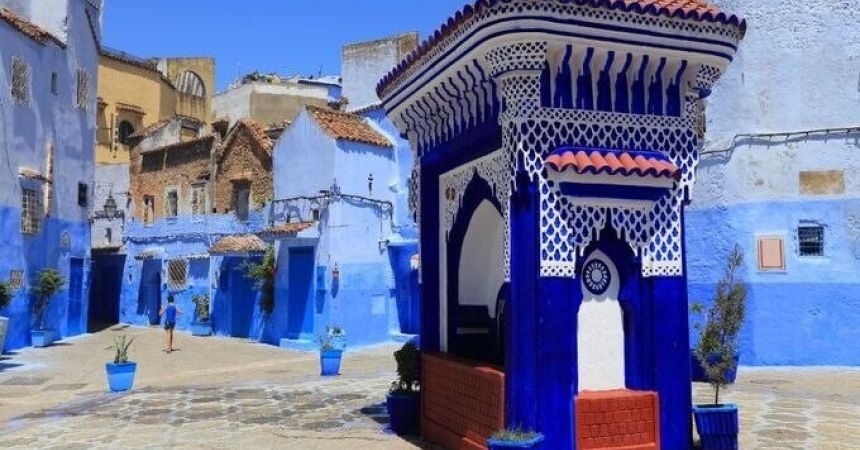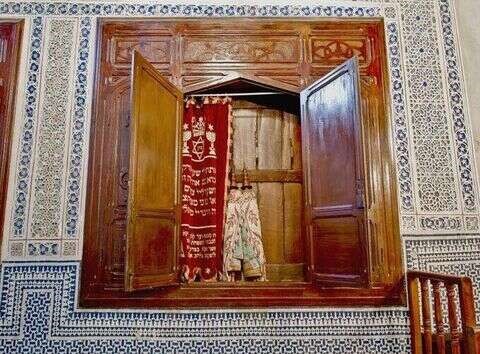
How to Plan a Perfect Trip to Morocco
Morocco, with its vibrant culture, stunning landscapes, and rich history, is a dream destination for many travelers. From the bustling souks of Marrakech to the serene dunes of the Sahara Desert, Morocco offers a diverse array of experiences. Planning a vacation to Morocco can be exciting but also overwhelming given the country’s numerous attractions and cultural nuances. This comprehensive guide will help you plan the perfect trip to Morocco, covering everything from essential travel information to must-see destinations and cultural insights.
Essential Travel Information
Visas and Entry Requirements
Most travelers, including those from the EU, US, Canada, Australia, and New Zealand, do not need a visa for stays up to 90 days. Ensure your passport is valid for at least six months beyond your planned departure date. Check the latest entry requirements as they can change.
Flights and Transportation
Morocco has several international airports, with the busiest ones located in Casablanca (Mohammed V International Airport), Marrakech (Menara Airport), and Rabat (Rabat-Salé Airport). Many airlines offer direct flights to these cities from major hubs in Europe, North America, and the Middle East.
Currency and Money
The Moroccan Dirham (MAD) is the local currency. It’s advisable to carry some cash for small purchases, as not all vendors accept credit cards. ATMs are widely available in cities and towns. Notify your bank of your travel plans to avoid any issues with card transactions.
Language
Arabic and Berber are the official languages of Morocco, but French is widely spoken, especially in business and tourist areas. Learning a few basic phrases in Arabic or French can enhance your experience and help you interact with locals.
Health and Safety
Morocco is generally safe for tourists, but it’s important to stay vigilant, especially in crowded areas. Drink bottled or filtered water, as tap water is not recommended. Carry a basic first aid kit and any personal medications you might need.
Choosing the Best Time to Visit
Spring (March to May)
Spring is one of the best times to visit Morocco, with mild temperatures and blooming landscapes. It’s ideal for exploring cities, hiking in the mountains, and enjoying the coast.
Summer (June to August)
Summer can be extremely hot, especially in inland and desert areas. Coastal cities like Casablanca and Essaouira offer cooler and more comfortable climates. This is a great time for beach activities.
Autumn (September to November)
Autumn offers similar conditions to spring, making it another excellent time to visit. The weather is mild, and there are fewer tourists compared to the summer months.
Winter (December to February)
Winter is the best time for desert excursions, with cooler temperatures making it more bearable. Coastal areas remain mild, but mountainous regions can be quite cold, with snow in the High Atlas Mountains.
Must-See Destinations
Marrakech
Marrakech, known as the "Red City," is famous for its vibrant souks, historic palaces, and lively atmosphere. Key attractions include Jemaa el-Fnaa, the Koutoubia Mosque, and the Majorelle Garden.
Fes
Fes is renowned for its well-preserved medieval medina, a UNESCO World Heritage site. Highlights include Al-Qarawiyyin University, Bou Inania Madrasa, and the Chouara Tannery.
Chefchaouen
The Blue City of Chefchaouen, nestled in the Rif Mountains, is known for its blue-painted streets and relaxed atmosphere. It’s a great place to unwind and enjoy scenic views.
Sahara Desert
A visit to the Sahara Desert offers an unforgettable experience, including camel treks, desert camping, and stunning sunrises and sunsets over the dunes. Merzouga and Zagora are popular gateways to the desert.
Essaouira
Essaouira is a coastal town with a laid-back vibe, historic medina, and beautiful beaches. It’s known for its fresh seafood and vibrant arts scene.
Atlas Mountains
The Atlas Mountains offer stunning landscapes and opportunities for hiking, trekking, and exploring traditional Berber villages. Popular destinations include Imlil, Ouirgane, and the Todra Gorge.
Casablanca
Casablanca is Morocco’s largest city and economic hub. Key attractions include the Hassan II Mosque, the Corniche, and the Art Deco architecture in the city center.
Rabat
Rabat, the capital city, is known for its historical sites and coastal attractions. Highlights include the Hassan Tower, the Mausoleum of Mohammed V, and the Kasbah of the Udayas.
Planning Your Itinerary
Week-Long Itinerary
If you have a week in Morocco, focus on the key highlights:
- Day 1-2: Marrakech
- Day 3: Atlas Mountains (Day Trip)
- Day 4-5: Fes
- Day 6: Chefchaouen
- Day 7: Return to Marrakech or fly out from Tangier
Two-Week Itinerary
With two weeks, you can explore more regions:
- Day 1-2: Casablanca
- Day 3-4: Rabat and Meknes
- Day 5-7: Fes and Volubilis
- Day 8-9: Chefchaouen
- Day 10-12: Sahara Desert (Merzouga)
- Day 13-14: Marrakech

Customizing Your Itinerary
Consider your interests and travel style when customizing your Morocco itinerary. Whether you’re interested in history, nature, adventure, or relaxation, Morocco has something to offer. Make sure to allocate enough time for each destination to fully enjoy the experience.
Accommodation Options
Riads
Staying in a traditional riad (a Moroccan house with an interior courtyard) is a quintessential Moroccan experience. Many riads have been beautifully restored and offer comfortable accommodations, delicious Moroccan cuisine, and warm hospitality.
Hotels
Morocco offers a range of hotels to suit different budgets and preferences, from luxury resorts to budget-friendly options. Major cities and tourist destinations have a wide selection of hotels.
Guesthouses
For a more intimate and personalized experience, consider staying in a guesthouse. Guesthouses often offer a homely atmosphere and the chance to interact with local hosts.
Desert Camps
In the Sahara Desert, staying in a desert camp is a unique experience. Many camps offer comfortable tents, traditional meals, and activities such as camel treks and stargazing.
Getting Around Morocco
Trains
Morocco’s efficient train network, operated by ONCF, connects major cities like Casablanca, Rabat, Fes, and Marrakech. Trains are comfortable and affordable, making them a great option for travel between cities.
Buses
Several bus companies, including CTM and Supratours, offer services to various destinations. Buses are a budget-friendly option and provide a comfortable way to travel.
Car Rentals
If you prefer driving, you can rent a car and explore at your own pace. Driving in cities can be challenging due to traffic, but the roads between cities are generally well-maintained.
Taxis
Taxis are widely available in cities and towns. For longer trips, consider hiring a grand taxi, which can be shared with other passengers. Always agree on the fare before starting your journey.
Experiencing Moroccan Culture
Local Customs and Etiquette
Morocco is a conservative country, and respecting local customs is important. Dress modestly, especially in rural areas and religious sites. When visiting a mosque, women should cover their heads and shoulders.
Greetings
Moroccans are known for their hospitality. When greeting locals, a handshake with the right hand is common. In more formal settings or between men and women, a slight bow or placing your hand on your heart can show respect.
Tipping
Tipping is customary in Morocco. In restaurants, a tip of 10-15% is standard. For guides, drivers, and hotel staff, small tips are appreciated.
Shopping and Bargaining
Bargaining is expected in Moroccan markets. Start by offering half the asking price and negotiate from there. Keep the process friendly and respectful.
Festivals and Events
Morocco hosts numerous festivals and events throughout the year. Some notable ones include:
- Ramadan: Observed with fasting from sunrise to sunset, followed by feasting and celebrations in the evenings.
- Eid al-Fitr: Marks the end of Ramadan and is celebrated with feasts and family gatherings.
- Eid al-Adha: The Festival of Sacrifice, involving the sacrifice of animals and sharing the meat.
- Marrakech International Film Festival: Held annually in December, showcasing international cinema.
- Fes Festival of World Sacred Music: Celebrating cultural and religious music from around the world.
Culinary Delights
Traditional Moroccan Cuisine
Moroccan cuisine is rich and flavorful, with influences from Berber, Arabic, and French traditions. Must-try dishes include:
- Tagine: A slow-cooked stew of meat, vegetables, and spices.
- Couscous: Steamed semolina grains served with meat, vegetables, and broth.
- Pastilla: A savory-sweet pie filled with pigeon or chicken, almonds, and spices.
- Harira: A hearty soup made with tomatoes, lentils, chickpeas, and lamb.
- Mechoui: Roast lamb, often prepared for special occasions.
Street Food
For a quick and tasty bite, try some of Morocco’s street food offerings. Popular options include:
- Msemen: A flaky, pan-fried flatbread, often served with honey or jam.



